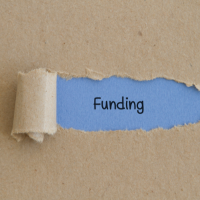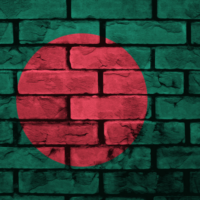United Nations grants are financial resources provided to non-governmental organizations (NGOs) and other entities to support projects that align with the UN’s mission of promoting peace, security, human rights, and sustainable development. These grants can come from various UN agencies, each with its own focus areas and funding priorities. Understanding the landscape of UN grants is crucial for NGOs seeking to leverage these funds effectively.
The grants can vary significantly in size, scope, and application processes, making it essential for organizations to familiarize themselves with the specific requirements of each funding opportunity. The UN allocates funds to address pressing global issues such as poverty alleviation, education, health care, and environmental sustainability. By understanding the overarching goals of the UN and its agencies, NGOs can better align their projects with the funding priorities.
This alignment not only increases the chances of securing a grant but also ensures that the funded projects contribute meaningfully to global efforts in addressing these challenges. Therefore, NGOs must stay informed about the latest developments in UN initiatives and funding opportunities to position themselves strategically in the competitive grant landscape.
Researching Eligibility and Criteria
Before diving into the application process, it is imperative for NGOs to thoroughly research the eligibility criteria associated with specific UN grants. Each grant opportunity comes with its own set of requirements that dictate who can apply, what types of projects are eligible, and any geographical or thematic restrictions. For instance, some grants may be exclusively available to organizations operating in certain regions or focusing on specific issues like climate change or gender equality.
Understanding these criteria is essential to avoid wasting time on applications that are unlikely to succeed. In addition to eligibility requirements, NGOs should also pay close attention to the evaluation criteria that will be used to assess proposals. These criteria often include factors such as project feasibility, sustainability, innovation, and alignment with UN goals.
By analyzing these aspects, organizations can tailor their proposals to meet the expectations of grant reviewers. Engaging in preliminary discussions with UN officials or attending informational webinars can provide valuable insights into what makes a successful application. This proactive approach not only enhances an NGO’s understanding of the grant landscape but also helps build relationships with key stakeholders.
Identifying the Right Grant Opportunity
With a plethora of grant opportunities available through various UN agencies, identifying the right one for your organization is a critical step in the funding process. NGOs should begin by mapping out their own mission, goals, and project ideas to determine which grants align best with their objectives. This self-assessment will help narrow down potential funding sources and ensure that efforts are focused on opportunities that resonate with the organization’s core values.
Once potential grants have been identified, it is essential to conduct a thorough analysis of each opportunity. This includes reviewing past funded projects to understand what types of initiatives have been successful and what gaps may exist in current funding landscapes. Additionally, NGOs should consider reaching out to other organizations that have previously received funding from the same grant source.
These conversations can provide invaluable insights into the application process and help organizations refine their proposals based on real-world experiences.
Preparing a Strong Proposal
Crafting a compelling proposal is perhaps one of the most critical steps in securing a UN grant. A strong proposal not only outlines the project’s objectives and activities but also demonstrates how it aligns with the UN’s mission and priorities. NGOs should begin by clearly articulating the problem they aim to address and providing evidence-based data to support their claims.
This data can include statistics, case studies, or testimonials that highlight the urgency and relevance of the proposed project. Moreover, a well-structured proposal should include a detailed project plan that outlines timelines, milestones, and expected outcomes. It is essential to articulate how the project will be implemented, who will be involved, and what resources will be required.
Additionally, NGOs should emphasize their capacity to manage the project effectively by showcasing past successes and relevant experience. Including a robust monitoring and evaluation plan will further strengthen the proposal by demonstrating a commitment to accountability and transparency.
Submitting the Application
Once the proposal has been meticulously prepared, the next step is submitting the application according to the guidelines provided by the specific UN agency. Each agency may have different submission processes, including online portals or email submissions, so it is crucial to follow these instructions carefully. Missing deadlines or failing to adhere to submission guidelines can result in disqualification, regardless of how strong the proposal may be.
Before submitting, NGOs should conduct a final review of all application materials to ensure accuracy and completeness. This includes double-checking budget figures, ensuring all required documents are included, and confirming that all sections of the proposal are coherent and well-articulated. It may also be beneficial to have a colleague or mentor review the application for feedback.
A fresh set of eyes can catch errors or suggest improvements that may enhance the overall quality of the submission.
Follow-Up and Communication with UN Officials
After submitting an application, maintaining open lines of communication with UN officials can be advantageous for NGOs. While it is important not to overwhelm officials with inquiries, a polite follow-up email expressing gratitude for their consideration can help keep your organization on their radar. This communication can also serve as an opportunity to ask any clarifying questions regarding the timeline for decisions or additional information that may be required.
Building relationships with UN officials can also provide valuable insights into future funding opportunities or changes in priorities within the agency. Attending conferences, workshops, or networking events where UN representatives are present can facilitate these connections. Engaging in dialogue about shared interests can lead to collaborative opportunities beyond just funding, ultimately enhancing an NGO’s impact in its area of focus.
Managing and Reporting on the Grant Funds
Once a grant has been awarded, effective management of funds is crucial for ensuring project success and maintaining a positive relationship with funders. NGOs must establish robust financial management systems that track expenditures against the approved budget. This includes keeping detailed records of all transactions and ensuring compliance with any specific financial reporting requirements set forth by the UN agency.
Regular reporting on project progress is also essential for transparency and accountability. Many UN grants require periodic reports detailing how funds have been utilized and what outcomes have been achieved. These reports should not only focus on financial aspects but also highlight qualitative impacts and lessons learned throughout the project’s implementation.
By demonstrating effective use of funds and showcasing successes, NGOs can build credibility with funders and increase their chances of securing future grants.
Evaluating the Impact of the Grant
Evaluating the impact of a funded project is a critical step that often extends beyond financial reporting. NGOs should develop a comprehensive evaluation framework at the outset of their projects that outlines key performance indicators (KPIs) and methods for assessing outcomes. This framework should include both quantitative metrics—such as number of beneficiaries served—and qualitative assessments—such as participant feedback or case studies.
Conducting thorough evaluations not only provides valuable insights into what worked well and what could be improved but also serves as an important tool for communicating success to stakeholders, including funders and community members. Sharing evaluation findings through reports or presentations can enhance an NGO’s reputation as a responsible steward of grant funds while also contributing to broader knowledge-sharing within the sector. Ultimately, effective evaluation practices can inform future project design and increase an organization’s capacity for impactful work in its community.
In conclusion, navigating the world of UN grants requires careful planning, strategic alignment with funding priorities, and diligent management practices. By understanding grant mechanisms, researching eligibility criteria, identifying suitable opportunities, preparing strong proposals, maintaining communication with funders, managing funds responsibly, and evaluating impact effectively, NGOs can enhance their chances of securing funding while maximizing their contributions to global development goals.









































